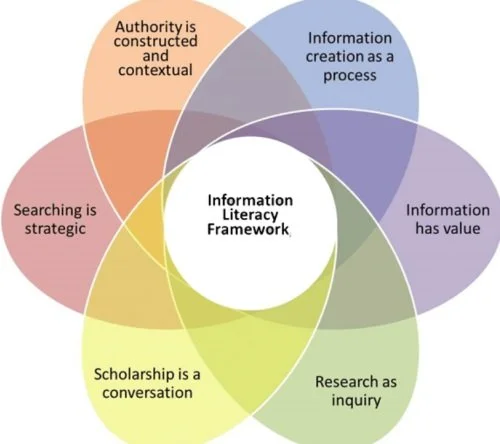Stephens Library
Information Literacy: A Library Guide
According to the American Library Association:
"Information Literacy is the set of integrated abilities encompassing the reflective discovery of information, the understanding of how information is produced and valued, and the use of information in creating knowledge and participating ethically in communities of learning."
Why do we need information literacy?
"Information literacy is the ability to identify, find, evaluate, and use information effectively. To be information literate means that one not only has great research skills, but good critical thinking." -Brooklyn Public Library
Information Literacy Framework:
Authority is Constructed and Contextual
Information Creation as Process
Information Has Value
Research as Inquiry
Scholarship as Conversation
Searching as Strategic Exploration
Information Literacy Framework Continued:
1. Authority Is Constructed and Contextual
Information resources reflect their creators’ expertise and credibility and are evaluated based on the context in which the information will be used. It is constructed in that various communities may recognize different types of authority. It is contextual in that the information needed determines the level of authority required.
2. Information Creation as a Process
Information in any format is produced to convey a message and is shared via a selected delivery method. The processes of researching, creating, revising, and distributing information vary.
3. Information Has Value
Information possesses several dimensions of value, including as a means of education, to influence, and as a means of understanding the world.
4. Research as Inquiry
Research is always changing and depends upon asking complex or new questions whose answers in turn create additional questions.
5. Scholarship as Conversation
Communities of scholars, researchers, or professionals engage with new discoveries over time as a result of different perspectives and interpretations.
6. Searching as Strategic Exploration
Searching for information is often a process requiring the evaluation of several information sources and the flexibility to pursue different routes as new understanding develops.

